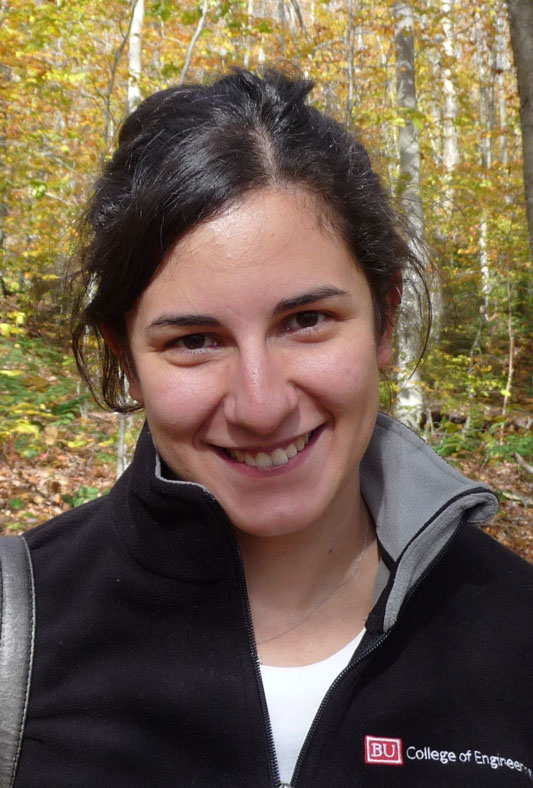Young Scientists Profile: Conversation with Ayse Kivilcim Coskun
1. Can you please talk about your background? (How did you chose your major? How did you decide to come to the USA?)
I am currently an assistant professor in the Electrical and Computer Engineering Department at Boston University. I have started my current position in 2009.
My undergraduate major was microelectronics engineering and I received my BS degree in Sabanci University. My interest in electronics was initially rooted in my general interest in math and physics. Sabanci University has a system similar to the schools in the US, where students do not have to declare their major until the end of the sophomore year. Looking back, I believe I selected electronics engineering because I liked the classes and the labs a lot.
I thought of becoming a college professor when I was in high school first time; though I actually cannot recall why exactly. But I do recall thinking of becoming a physics professor; perhaps the fact that my mother was a physics teacher had affected me, and I did like physics. Later on at Sabanci University, I was among the first undergraduate class of the university, so we had small classes and were able to interact closely with the professors a lot. The engineering classes were very hands-on and project-oriented. Overall the quality of instruction was exceptional and I think this inspired quite a few people in my class to continue our careers in academia. Several of my professors at Sabanci had PhDs from well-known schools in the US, so I thought continuing to graduate school in the US was a plausible option. I also wanted to go abroad and explore other countries, but I specifically wanted to come to the US because I thought that’s where the “heart of the academia” in engineering would be. In graduate school, I started studying at University of California San Diego and received my PhD degree in computer science and engineering.
2. What is the driving force behind your success at such young ages?
Probably the most straightforward response here is that I really like what I do. That is, I love doing research, exploring new ideas, solving problems, and I love being in an academic environment where I can continuously learn new things and interact with my students and colleagues. Starting from a rather young age, I’ve always wanted to have a profession where I work on things I actually care for, and being a faculty member gives me this opportunity. So, my curiosity is one of the major driving forces behind the hours I put in my work.
I also think I have the necessary “perseverance”, meaning that I don’t give up easily. Being a researcher has a lot of challenges and there are many low points one has to go through. Sometimes these challenges are research-related, sometimes they are related to the external pressure from peers and mentors, or sometimes they could be related to balancing work with personal life. Each job has its own challenges but research, or academic life, is a lifestyle rather than a job, in my opinion. So having the internal drive to continue in spite of difficulties has probably made an impact in my career so far.
3. What would you like to say to the Young Turkish Scientists?
Two pieces of general research advice come to my mind; I often talk about these points with my PhD students and try to use them as guidelines myself. First, don’t be afraid of exploring the less traveled path in research. Sometimes it seems easier (or more productive) to follow the more commonly chosen directions in research. However, it’s often hard to make high impact contributions in this way and a lot of such research ends up making incremental changes to the state-of-the-art. Every once in a while, it’s important to step back and re-evaluate the scientific approach, think whether a completely different direction would make more sense, and change the methodology if needed. Second, don’t try to take short-cuts. Sometimes the pressure to publish pushes scientists to produce mediocre or trivial research results. Submitting a research paper to a conference, finishing a thesis draft, or finishing up some experiments/implementation by a deadline becomes higher priority compared to the actual research quality. It’s important to remember that only high-quality, innovative research wins in the long run and short-cuts that may seem immediately rewarding most often do not bring any real career advantages.
There are many talented, successful Turkish scientists and engineers in the US currently. Building a stronger scientific community would have benefits to the scientific developments in Turkey as well as to the global research community. I encourage young Turkish scientists to participate in and develop professional networks that go beyond their immediate circles.
4. What would you like to achieve in the near future?
In terms of the research topic I’ve been working on, my goal is to create innovative solutions for reducing the energy consumption of computing. The amount of energy we are putting in computing, from mobile computers to large-scale data centers with thousands of servers, is a significant limiting factor for achieving sustainable computing. I am working on designing better computer hardware as well as intelligent system management and software to help solve the sustainable computing challenge.
More generally, I would like to create a technically strong, self-sufficient, and active research group that has high visibility. I’d like the members of my research group to be leaders in their areas of expertise and build strong ties with the research community. On the teaching side, my goal is to continue to improve my teaching abilities and help build a stronger computer engineering program at Boston University. Specifically, I am working on bringing more “active-learning” methods into the courses I teach and designing a new course covering advanced computer engineering topics.
